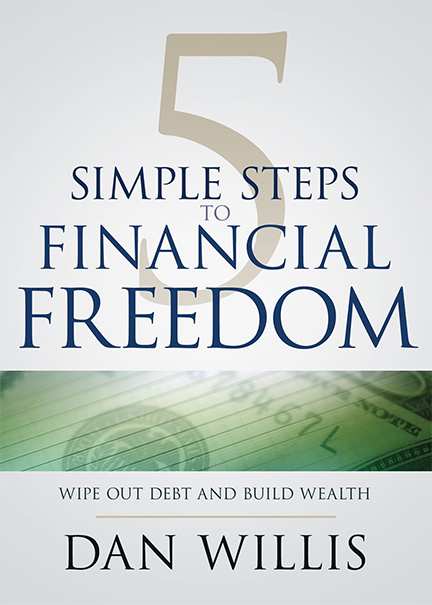My kids used to do “stitcheries.” Simple little sayings and images embroidered with running stitches into fabric-covered batting. It gave them a quilted appearance that had a “primitive” look. Sometimes we framed them, others we sewed them into pillows or added them to quilts and tote bags.
I’d scour quilt stores every time we went out of town to find their next pattern. These fabric palaces had Longaberger baskets full of patterns. But every time I flipped through one, I’d find something I thought the girls would enjoy making.
Some were funny. “Thou shalt not whine.” Others were Scripture. “Blessed are the peacemakers.”
I’ll never forget the one that actually changed my life.
“Live within your harvest.”
Look, it wasn’t that I didn’t know the principles of good money management. I’d read every book on Christian bookstore shelves. Larry Burkett, John Avanzini (chosen because my maiden name was Avants), Dave Ramsey. The problem is that knowing the facts doesn’t always strike a chord with you. That little stitchery did.
Live within your harvest.
Such a beautiful word picture. A farmer in 1800 in the wilderness. No one around for a hundred miles. He has to sow his crops, tend them, harvest them, and survive on what he harvested. Period. It’s that or starve.
I could do that.

So I did. No, really. I did. First, I split our paycheck into three bank accounts and a savings account. One account was for fixed bills that came every month. Mortgage, utilities, insurance. The second was our “sludge account.” The third for my husband’s spending money. If the balance was zero, he was done until payday when his employer would dump money in again.
And every Monday following payday, a certain amount was dumped into savings at a bank that takes three days to transfer to our regular bank. No impulse spending there!
Then I got serious. I signed up for auto-pay on everything that had it. At first, neither water nor trash service offered that. Eventually, they did. And with just those steps, everything else became so much easier. It’s not so overwhelming to deal with paying off debt when you know everything else is already covered.
And it all began with one little simple thing.
Live within your harvest.

Note: links may be affiliate links that provide me with a small commission at no extra expense to you.
It’s the No. 1 Way to Solve Your Money Problems
The synopsis grabbed me. It promised a simple, down-to-earth plan for becoming financially “free.” I know how overwhelming some of the more popular programs can be for people, so I immediately requested a review copy.
This book had a lot of ups and downs for me. I’m going to start with the negative, because I want to end on a positive note, and there are positives to note!
What I didn’t like:
First, the book is hard to follow. It rambles, gets disjointed, and the anecdotes don’t always fit the point he’s trying to make. One spot, in particular, was really confusing. One minute he was talking about budgeting, the next about slothful people, the next it’s back to how you spend money on this or that but don’t tithe, and then back to kicking your boyfriend out of your bed if he won’t give you “a piece of paper.”
I reread the section several times trying to figure out how it all meshed, but I never did.
Additionally, some of his stories contradict each other. I suspect that’s because we don’t know the whole story and he does. If we sat down to chat, I have no doubt that he’d make it all make sense, but it didn’t work that way. In the beginning, he told about a Sunday he preached a sermon after he’d gotten debt free and shredded three credit cards as part of the services. Later, he said when he got convicted about debt, God told him to tear up all the cards right then, so he did. It can’t be both. And while, as I said, I believe it’s just an issue of not knowing the whole of each story, it illustrates how it’s hard to follow sometimes.
Second, and granted this is a bit picky, but it bugged me.
He also makes a big deal about what debt will “do to you.” I’ve never been a fan of “xyz made me hate this” or “abc made me…” No, we choose to sin because we choose to sin. Something can tempt us, but debt doesn’t make me curse anything. I sin. Period.
Third, there’s a strong “prosperity gospel” undertone.
As much as he stresses that it’s not about getting rich, um… he makes a big to do about “prospering.” It’s true. People need a vision. They need hope. But it’s frustrating to be told it’s not about “getting” and then having page after page of how God prospered him until he asked for no more “prospers.” Which is it?
Fourth, sweeping statements.
Look, I get it. I get sick to death of every, single statement we make needing a qualifier! Who wants that? But when you are writing to people who are buried under debt, the assumption that the only reason people end up in credit card debt is because they couldn’t resist shoes at the mall or a designer coffee every day is discouraging, and it makes people who need it most tune out. I guess it’s not fair to say there was an “assumption” of that. My problem is perhaps the lack of acknowledgment that there are those who do end up in debt for reasons other than frivolous spending.
Hey, there’s a lot of that out there. I won’t pretend there isn’t. But I know just as many people who are buried under credit card debt because of taxes or medical bills and the associated costs (hotels, food, mortgage payment while parents are struggling to keep their kid alive!) and similar things as I do because they couldn’t say no to a trip to Bali because it was a great sale.
Finally, there’s a bit of a mocking tone at times.
Normally, I’d like that, actually. I like it when people make fun of our foolishnesses to get us to see what stupid ideas we’ve fallen for. It’s just how my brain works. But every person that I know who needs the help in this little book would find those “jokes” painful.
The synopsis says “without shaming those who struggle…” but I don’t struggle with financial issues, and I felt shamed for people who do. He swings from encouraging to “tough love” in a rather flippant way. I think he’s trying to be funny, but it’s kind of “backhanded” encouragement in that respect.
So, after all that, what WAS good about 5 Simple Steps to Financial Freedom?
The premise. No, really. Before you write it off, this book has good, solid information among the rest. His five simple steps are solid. And unlike more popular books on the market, this one has a plan that is short, simple, and easy to follow. He breaks it down into manageable steps that you can find in the synopsis, so I’m giving them to you here.
- Stop credit spending
- Make and stick to a budget
- Pay off previous debt
- Start saving
- Repair your credit
His choice of order is excellent. It’s hard to stick to a budget if you keep putting yourself deeper in the pit of debt. You can’t know what you can afford to do in paying off debt unless you know what you have to spend! Once you’ve paid off that debt, you’ve managed to learn to live on less than before, so put some of that back in savings to prevent that problem in the future. And, while you’re doing that, fix the mess you made on your credit report.
Do you do that so you can get back into debt? Nope. I love his premise here. It took a bit to figure out what he was doing with it, but seriously, it’s so cool. It’s about restoration. It’s about working to have your financial reputation restored.
I loved that. And I think it’s important.
Look, I know part of my problem with this book is a difference in doctrinal understanding. But most of it was just how all over the place it was. But if you can read and pull the nuggets from the ore, you’ll find excellent tools—things we all know but need reminders and encouragement to do.
And this, folks, is how we live within our harvests today. 5 Simple Steps to Financial Freedom doesn’t tell us anything any other book hasn’t told us before. But unlike most financial books, it’s short and a good reminder of solid financial principles. You would probably get more helpful information elsewhere, but if you’re easily overwhelmed, maybe this would be the one for you.
5 Simple Steps to Financial Freedom is on tour with Celebrate Lit
 About the Book
About the Book
Title: 5 Simple Steps to Financial Freedom
Author: Dan Willis
Genre: Finances/Christian living
Release date: January 8, 2019
Publisher: Whitaker House
As a young and naïve pastor, Dan Willis maxed out twenty-three credit cards and ruined his credit to support his ministry. It wasn’t until massive debt caused the cards to stop working that he realized that God never asked him to do this. Through his candor and honesty, Dan reveals the five steps God showed him to get out of debt: stop spending, create a budget, develop a debt payoff plan, begin saving, and repair bad credit. This led him to becoming a thriving and financially-free ministry.
Now, Dan is on a mission to teach this to the world. Using biblical principles, but not relying on miracles or “name-it-and-claim-it” theology, Dan provides easy-to-follow, practical steps that can be used by anyone to escape financial bondage. Finally, he encourages readers to use their financial freedom to help others and advance God’s kingdom, and to use their newfound fiscal wisdom to store up wealth.
Without shaming those who struggle financially, 5 Simple Steps to Financial Freedom is the perfect combination of spiritual wisdom and practical advice for those who desperately need it.
To celebrate his tour, Dan is giving away a $20 Starbucks gift card!!
Be sure to comment on the blog stops for nine extra entries into the giveaway! Click the link below to enter. https://promosimple.com/ps/d8d4/5-simple-steps-to-finical-freedom-celebration-tour-giveaway


This sounds great
Thanks for the giveaway!
Thanks for sharing your honest review with us
I got into debt when we moved and it took 2 yrs to sell our old house so it definitely wasn’t shoes and vacations that did it
I know a significant amount of American consumer debt is for unnecessary impulse purchase and “stuffitis” but that kind of sweeping statement is rough, because those most likely to be looking for an out are those who are usually responsible with their money and need help with what went wrong despite best efforts.